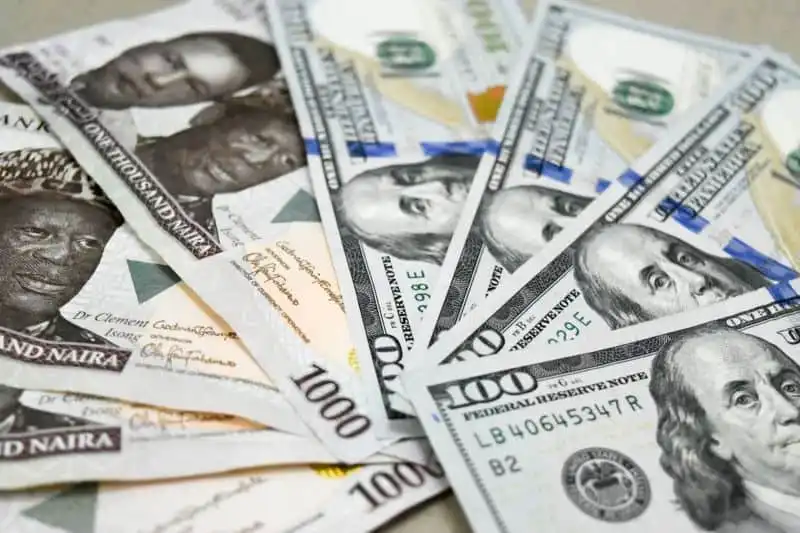Nigerian naira (NGN) hits record low against USD amidst economic crisis. Inflation rises, government policies fail, impacting global corporations.
Throughout recent months, the trajectory of the Nigerian naira (NGN) has continued its prolonged descent against the United States dollar (USD), reaching a fresh nadir amid the country's struggles with foreign-currency scarcities, despite concerted efforts by its central bank to address the issue.
Undoubtedly, the official currency of Africa’s largest economy "is witnessing new historic lows against the US Dollar," exacerbating a trend that has persisted for nearly a decade, as illustrated by chart data presented by the market analytics platform Barchart in a recent post on February 29.

NGN/USD evaluation
In current developments, the Nigerian naira has sustained its depreciation relative to the US dollar, with its value against USD slipping to $0.000632 on February 28 and continuing its downward trajectory to approximately $0.000573 at the time of this publication, based on the latest chart data.
Particularly noteworthy is its present status indicating a 1.72% decline over the week, a notably sharper downturn of 47.04% on the monthly chart, and an overall depreciation of 46.55% over the past 12 months, as indicated by the most recent figures sourced by Finbold from TradingView on February 29.

Escalating Inflation
Meanwhile, the latest dismal figures emerging amidst one of the country's most severe economic crises in recent memory come despite interventions by the central bank, including the sale of $100 million worth of dollars last week, bringing the total interventions to $300 million within a single week, according to a Reuters report on February 23.
Furthermore, the currency's devaluation, propelling inflation to nearly a three-decade high of 29.9% and positioning it as the third-worst performer among 150 currencies tracked by Bloomberg, has impacted not only Nigeria but also corporations globally, including London-based lender Standard Chartered, which has incurred significant losses.

Lapses in Government Policies
In essence, the dire circumstances in Nigeria partly stem from governmental policies that restricted access to the dollar for importers of specific goods in an effort to stabilize the economy following the 2014 downturn in crude oil prices, the nation's primary foreign exchange revenue source.
However, this approach inadvertently fostered widespread theft and pipeline vandalism, leading to a decline in crude oil sales and contributing to further destabilization of the naira by fostering a parallel black market for the dollar, where the currency traded at significantly lower rates.
Significantly, the devaluation of the naira has also spurred the emergence of cryptocurrency platforms, prompting government crackdowns on these platforms and resulting in the detention of two senior executives at the crypto trading platform Binance, prompting the exchange to suspend trading of the naira against Bitcoin (BTC) and Tether (USDT).
Begin trading forex and stocks CFDs today with Plus500 – a regulated broker with no commissions
Disclaimer: The content on this site should not be considered investment advice. Investing is speculative. When investing, your capital is at risk.


